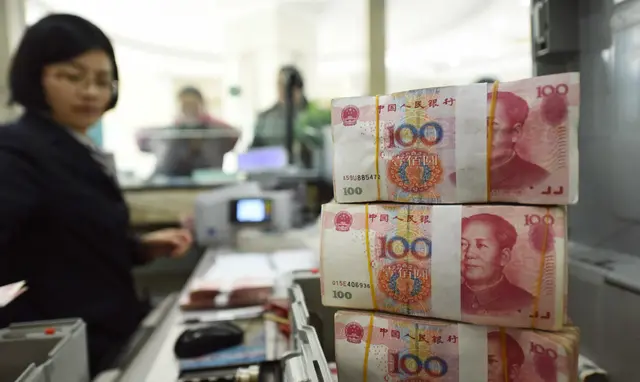The depreciation of the Chinese currency, the yuan, has made headlines around the globe as its impact could be widespread.
The yuan has been heading south since the central bank revamped the foreign exchange mechanism in August, saying it was making the rate more market-based. In the past week, it weakened notably, by 1.5 percent against the U.S. dollar, the largest weekly decline since August.
The effects could be felt in several areas of the economy, and there could be both negatives and positives.
Less spending power overseas
Chinese consumers are one of the losers of the currency's depreciation. A weaker yuan means they will have less purchasing power overseas. Traveling abroad will be much more expensive, and the cost of goods and services after arrival will also rise for yuan holders.
Greater purchasing power in China
A weaker yuan against the dollar means one dollar can buy more goods priced in yuan. It is encouraging news for those considering visiting China on vacation or to study as they will have more purchasing power than they did before.
Currency exchange boom
Over concern about the potential for further depreciation of the yuan and domestic stock market volatility, Chinese investors have rushed to invest overseas to preserve the value of their assets. To do so, they needed to exchange their yuan for dollars. This triggered a boom in currency exchange, with some individuals using up their 50,000-yuan (about 7,576 U.S. dollars) annual quota for purchasing foreign exchange (forex) during the first two weeks of 2016.
Both trouble, boon for Chinese businesses
The weakening of the yuan will cheer Chinese exporters as their goods will appear cheaper to foreign consumers and, thus, become more competitive. Meanwhile, imported goods will become more expensive, leading to higher costs for manufacturers using imported materials.
The depreciation poses challenges for companies with outstanding debts, especially those denominated in dollars, causing forex losses. It will also hit some Chinese companies by making their overseas investment more expensive.
Outlook for foreign companies
In the short-term, multinational companies that do a lot of business in China could feel the pressure as the yuan's weakening will cut into their earnings.
In the longer term, however, the country's gradual transition from an export-driven and heavy industrial economy to one that depends more on domestic demand means opportunities. It may be better for these companies to weather the negative currency impact than pull out of the market.
No basis for substantial depreciation
Despite the depreciation, Chinese officials have repeatedly stated that the country's sound economic fundamentals, persistent export surplus, large forex reserves, as well as moderate fiscal deficit and government debt will allow the currency to remain fairly stable.
A weaker yuan may hasten capital outflow, but China's trillions of dollars in forex reserves could cushion the blow.
 简体中文
简体中文






